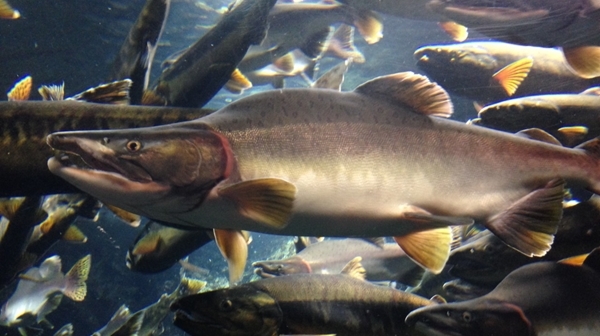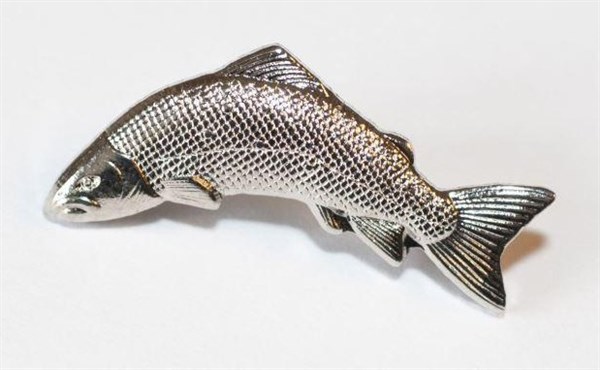
AS it is anticipated that pink salmon will appear in UK rivers in large numbers this year, ecologists across the UK are teaming up to explore the presence of invasive pink salmon and their potential impacts.
This year-long preliminary study will use environmental DNA techniques to detect and plot the distribution of this non-native species and environmental tracers to explore their impact on our riverine ecosystems.
It comes after unprecedented numbers of pink salmon (also known as humpback salmon) were encountered in UK rivers in 2017.
Typically, pink salmon, which are native to the Pacific Ocean, have a two-year life cycle. This means they are likely to re-appear in our rivers in numbers this year.
Some fish have already been caught in Ireland, Scotland and northeast England, with more expected to arrive over the next two months.
There are concerns that this invasive species could become established in UK rivers.
Anglers have been asked to report sightings of pink salmon, including their spawning activity. The invading pink salmon spawn in August or September, earlier in the year than Atlantic salmon.
The Game & Wildlife Conservation Trust (GWCT) and other project partners, Cefas (Centre for Environment, Fisheries and Aquaculture Science), Queen Mary University of London (QMUL), Marine Scotland Science, Scottish Natural Heritage and the Environment Agency, ask anglers to report any sightings of pink salmon.
“For future management of this invasive species, it is important to understand its distribution and the potential impact of pink salmon in UK river ecosystems”, said Dr Rasmus Lauridsen, head of GWCT fisheries research, and his partners Prof. Gordon Copp at Cefas and Dr Iwan Jones at QMUL.
Working with the project partners in rivers throughout England, Scotland and Wales, visiting researcher Dr Michał Skóra (University of Gdansk) will refine and test environmental DNA methods for detecting the presence of Pacific pink salmon. Visiting researcher Dr Hui Wei (Pearl River Fisheries Research Institute) will use stabile isotopes to study potential ecosystem effects of the presence of this invasive species.
The study takes place during the International Year of the Salmon (2019) during which England, Scotland and Wales have joined countries across the Northern Hemisphere to launch the International Year of the Salmon (IYS) 2019, a North Atlantic Salmon Conservation Organization (NASCO) and North Pacific Anadromous Fish Commission (NPAFC) initiative to support the conservation and restoration of wild salmon species.
Funding has been provided by GWCT, the collaborating organisations, the National Science Centre of Poland and the Chinese Scholarship Council.

Get your GWCT Fisheries Badge for £9.99
£5 from the sale of each badge goes directly to our fisheries research centre in Dorset
You can help us understand what's driving the decline in Atlantic Salmon numbers by buying one of our salmon pewter pin badges. The badge measures approx. 3cm.
View Badge >
or
Buy Now - £9.99 >
100% Secure. All Credit & Debit cards, PayPal, Apple Pay and Google Pay accepted.

Notes to editors
The Game & Wildlife Conservation Trust – providing research-led conservation for a thriving countryside. The GWCT is an independent wildlife conservation charity which has carried out scientific research into Britain’s game and wildlife since the 1930s. We advise farmers and landowners on improving wildlife habitats. We employ more than 60 post-doctoral scientists and other research staff with expertise in areas such as birds, insects, mammals, farming, fish and statistics. We undertake our own research as well as projects funded by contract and grant-aid from government and private bodies.
For information, contact:
Eleanor Williams
Telephone: 07592 025476
Email: press@gwct.org.uk